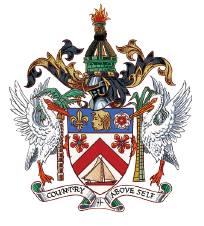From the Supervisor of Elections – Vol II No 2: Votes from the great beyond?
Office of the AG
Electoral Office
HIGHLIGHTS
From the Supervisor of Elections
Vol II Issue No 2: Votes from the great beyond?
In the USA, the losing side has claimed that persons who were long deceased cast votes in the November 3rd election. It is something we have heard before. I cannot comment on the US situation, but I will outline why that cannot happen here.
Let me state from the outset that our voters list always has and always will have names of deceased persons on them. This is for several reasons: a) the voters lists is produced in advance of polling day, so between publication and polling, some people may pass away, b) we can only remove names of deceased when we receive notification of death from the Ministry of Health – which we receive once per year – or if someone produces a death certificate, c) not all persons on our register actually die within the Federation, so we may never know, and d) when the electoral identity (name, address, occupation, date of birth) of the deceased is consistent with the certified information or can be independently verified.
Verification of the electoral identity is particularly important as it is the address at which the person died that will be recorded on the death certificate as opposed to the address at which the person actually lived and registered. We have had situations where persons who are very much alive were reported to have died. This was the case with Ms ***** (name withheld) of Bath Village, Nevis, who was a witness in the election petition of Brantley vs Daniel in 2012.
Please note, that any living person, whose name was removed from the register by reason of death should contact the Electoral Office to have the matter rectified, even on voting day.
So how do we prevent these persons from voting? There are three significant safeguards.
Firstly, each polling station is equipped with a Voter Verification List, VVL, or picture list. When a voter presents him/herself, a picture identification is required. We train our staff to compare the picture list with the person presenting and the id offered as a form of verification. It is true that the voter can vote without a picture id, – he/she can take an oath of identity. But remember, we have a picture of the person standing in front of us.
Secondly, we try as much as possible to place electoral staff in or near their sphere of residence. Thus, while they may not know everybody – in particular, the overseas based voters – there is a level of familiarity that can be applied.
Thirdly, each candidate is allowed to place an Agent in each and every polling station. The role of the agent is critical, it is they who must ensure that procedures are properly followed. It therefore behooves the candidates to educate their agents in the laws that govern the electoral process. If an agent observes any infraction, they have a right to object and escalate their objection to the Returning Officer, the Supervisor or the Electoral Commission. There is even the opportunity to lodge a complaint with independent observers when present. Critically, each Agent is equipped with a copy of the VVL.
When these safeguards are followed, it is impossible for dead persons to vote in our elections… period!
Maybe we should then amend or tag line to say “one live person, one vote in the right place and fairness to all”.







